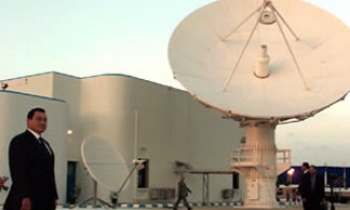Happy Independence Day. In between grilling, lawn mowing and fireworks watching, take a few minutes to secure your right to know what your government is doing, a cornerstone of our freedom. The best way I can think of doing so in today's America is to go out and buy a copy of the New York Times. Or subscribe. But one way or another, pay for it, regularly.
Right now, more than any other nongovernmental entity (and most governmental ones, where whistle-blowers are punished, scientists are muzzled and the public is regularly lied to), the NYT protects America's freedom. I'm embarrassed to admit that I let my Times subscription lapse because I had no time to read it. You may be in the same boat. So give it to a local library.
Because whether you or I are informed or not, America needs the Times on the beat. It sets the table for our national discussion, puts second thoughts in the minds of public sector liars and abusers of power, and empowers the rest of the American media.
Currently the Times is taking major pummeling from the White House, the conservative media and many Americans for publishing details of the international cooperative called SWIFT, which has facilitated U.S. scrutiny of global financial transactions in the name of preventing terrorism. Last year, the Times exposed the government's vast antiterrorist electronic eavesdropping program, which was operating, in the opinion of many Republicans and most Democrats, outside the law with no oversight.
Before you pigeonhole me as a limousine liberal, I am personally inclined to give the White House the benefit of the doubt on these programs, even though they are inevitably prone to abuse by an overzealous, secrecy-mad administration. Such is the nature of the threats the nation faces. And I am willing to grant the Times' critics that the SWIFT revelations were merely that. There was no implication of illegality or wrongdoing. Gratuitous? To some. The truth, to me.
What I am not willing to cede is my right to know that these programs exist, nor my elected representatives' right to scrutinize them. In the United States we elect a president, not a king (not that you'd know that these days).
The Times, for its efforts, has been accused of all but treason in many quarters. (OK, Ann Coulter calls it treason.) What is most chilling is that so many Americans are willing to write off their fundamental right to know what our government does. This, despite repeated evidence from administration after administration, Republican and Democrat, that the White House is prone to make its own rules, lie to the public, and duck accountability.
What renders the administration's outrage at the Times so hollow is that it has acknowledged since 9/11 that it is using every technique at its disposal to monitor terrorists' communications and impede their fundraising. If Al-Qaida were capable of pulling off 9/11, did it take the NYT to clue it in to the fact that its phone conversations, e-mail communications and financial transactions were subject to electronic scrutiny?
For those who think I am being too easy on the Times, remember that SWIFT has its own website (swift.com), describing its capabilities and expertise. (White House flak Tony Snow: "I am absolutely sure [the terrorists] didn't know about SWIFT.")
Ironically, it is not the cries of treason that could most readily neuter the Times. It's the accelerating consolidation of the newspaper industry, which has led dozens of privately held family-owned newspapers to regrettably sell to publicly traded conglomerates that are under pressure to bring more to the bottom line.
Just this summer, Knight Ridder passed into history and Tribune Co. went into play. They were and are quite profitable, but not as profitable as some media businesses that invest less in a public service mission. And there is talk that the Times, publicly traded but family controlled, is not meeting Wall Street's expectations.
The Times (and its wire service, which appears in the Star Tribune and virtually all other North American newspapers) is uniquely influential due to its sense of mission and global resources. But a Times with margins that met those of the most profitable media businesses would not be so. And if the company were put into play like Knight Ridder, it might fall under an owner without the stomach for fending off accusations of treason.
So this Independence Day, don't just read the Times online for free, skim its columnists in these pages, or merely discuss it at your pool party. Pay for it. Safeguard its future and our freedom.
I am personally inclined to give the White House the benefit of the doubt on these programs ... What I am not willing to cede is my right to know that these programs exist, nor my elected representatives' right to scrutinize them.
Adam Platt is a Minneapolis writer.









